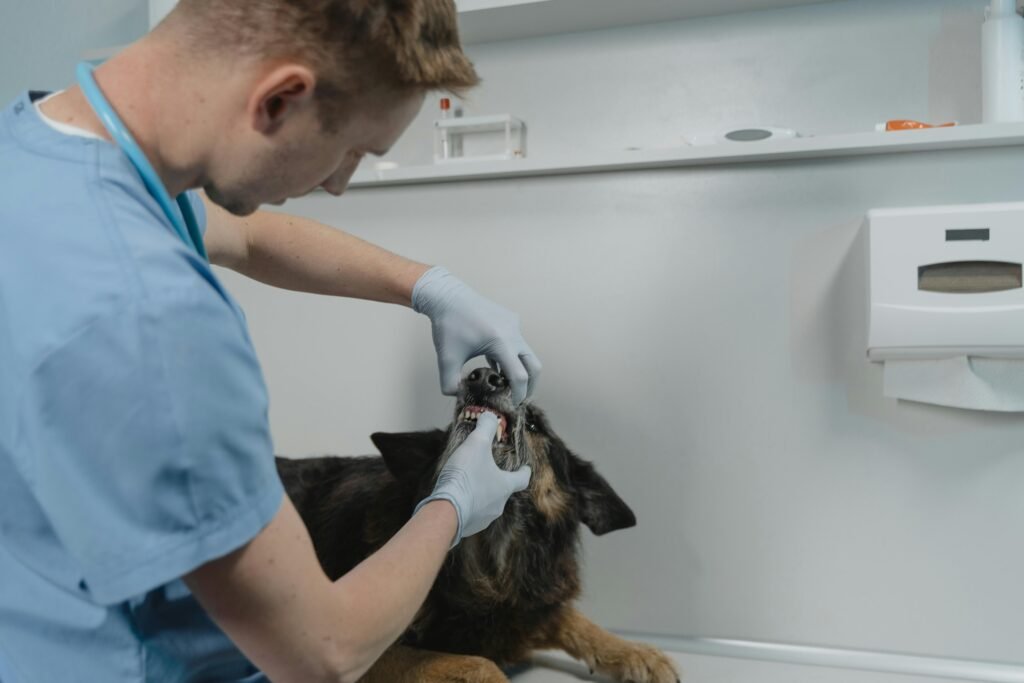Discover common dental problems in pets, their root causes, and effective solutions to ensure your furry friends stay healthy and happy!
Common Dental Issues
Pets face various dental problems, including periodontal disease, tooth decay, and bad breath. Among these, periodontal disease is the most prevalent. It affects the gums and structures surrounding the teeth. Moreover, tooth decay can lead to pain and infections, significantly impacting your pet’s quality of life. Bad breath, often dismissed, usually signals underlying problems that need attention.
Root Causes of Dental Problems
Several factors contribute to dental issues in pets. One major cause is poor oral hygiene. Just like humans, pets require regular dental care. Additionally, genetics play a significant role; some breeds are more prone to dental issues than others. For instance, small breeds often have crowded teeth, which increases the risk of decay.
The Importance of Diet
Diet plays a crucial role in maintaining dental health. Feeding pets high-quality food promotes strong teeth and healthy gums. In contrast, sugary or soft foods can lead to plaque buildup. Therefore, transitioning to dry kibble can be beneficial, as this food type helps clean teeth naturally as pets chew.

The Role of Chewing
Chewing is essential for good dental health. Chew toys can effectively reduce plaque and tartar buildup. Look for toys designed specifically to clean teeth while your pet enjoys them. Natural chews, such as rawhide or dental sticks, are also beneficial. These satisfy your pet’s urge to chew while promoting oral health.
Signs of Dental Problems
Recognizing the signs of dental problems early is vital. Watch for symptoms such as swollen gums, bleeding, or difficulty eating. If your pet has bad breath or excessive drooling, it’s time to visit the vet. Early intervention can prevent severe issues and ensure your pet’s comfort.
Regular Dental Check-ups
Routine veterinary dental check-ups are essential. These visits help identify problems before they escalate. Your vet can provide professional cleanings and tailored advice to meet your pet’s needs. Additionally, regular visits keep you informed about the best dental practices for your furry friend.
Home Dental Care Tips
Home dental care is equally important. Brushing your pet’s teeth can significantly reduce plaque buildup. Use a pet-specific toothbrush and toothpaste for the best results. Gradually introducing brushing can help make it a positive experience. If your pet resists, consider dental wipes or water additives as effective alternatives.
Understanding Professional Cleanings
Sometimes, pets require professional dental cleanings. Your vet may recommend this if your pet has significant tartar buildup. During these cleanings, the vet can also check for hidden problems, such as tooth decay or gum disease. While this may seem daunting, it’s crucial for your pet’s overall health.
The Benefits of Dental Treats
Dental treats offer a fun way to promote oral health. Many treats are specifically designed to reduce plaque and freshen breath. Incorporating these into your pet’s routine can enhance their dental care. However, be sure to choose treats that suit your pet’s size and dietary needs.
Hydration Matters
Hydration plays a key role in maintaining dental health. Ensure your pet has access to fresh water at all times. Proper hydration helps wash away food particles and bacteria, thus reducing plaque buildup. Encourage your pet to drink regularly, especially during warmer months.
Training and Behavior
Training your pet to accept dental care is crucial. Start slowly and reward them for cooperation. Use treats and praise to create a positive association with brushing and dental care. A well-trained pet is more likely to receive the necessary dental attention without fuss.
Conclusion: A Bright Future for Pet Dental Health
In conclusion, dental problems in pets are manageable with the right knowledge and care. Understanding the root causes is the first step towards prevention. By incorporating regular dental care and check-ups, you can ensure your pet maintains a healthy mouth. Remember, a happy pet has a bright smile!
By staying proactive and engaged, you can significantly improve your pet’s dental health. With these tips, your furry friends will enjoy healthier lives and happier moments!
